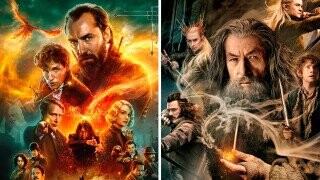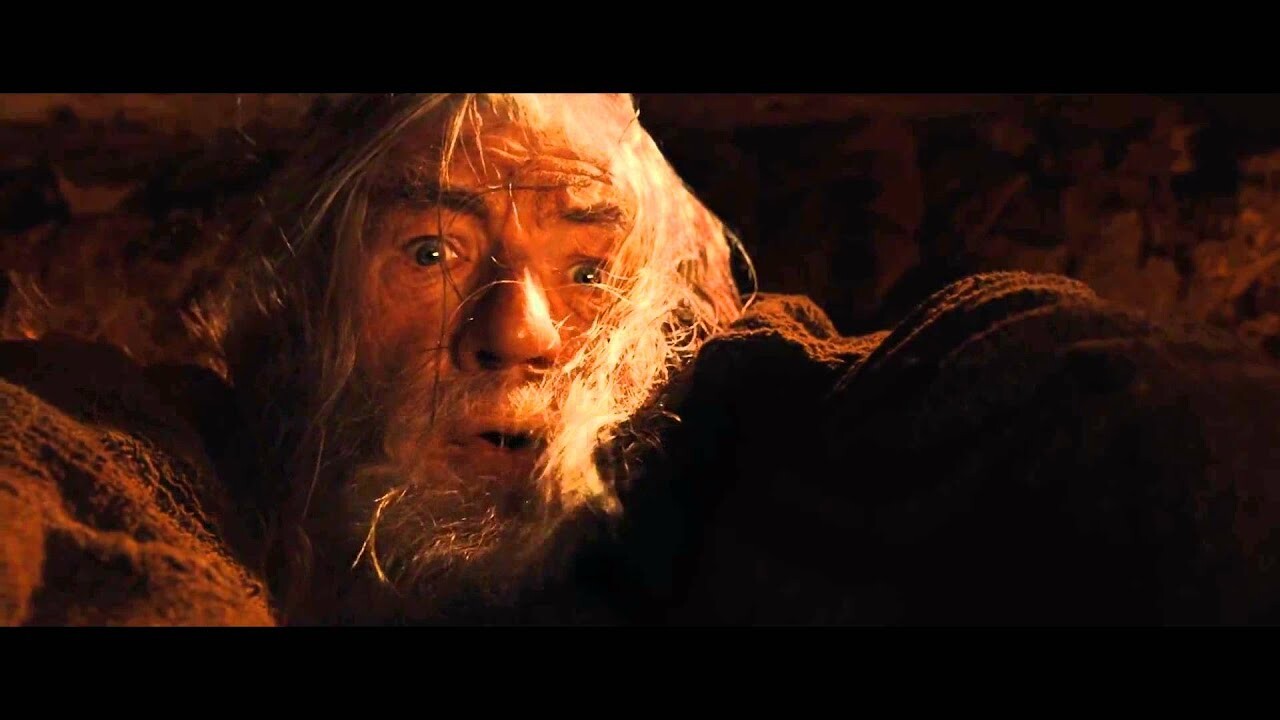The Lesson 'Fantastic Beasts' Should Have Learned From 'The Hobbit's Failure

Warner Bros. seem to really dig their prequels. They also seem to really suck at them, too. To be clear, we’re not talking about production flaws or narrative issues or the PR nightmare of dealing with real life fire-breathing monsters behind the scenes. No, we’re not even talking about any of that nonsense, even though we’re wondering who’s hiding the monkey’s paw here because it’s all starting to feel like a cautionary tale of greedy people not learning things. Classic … characters in some fantasy, we guess.
Anyway, we digress — just like a second film in a trilogy nobody wants. Back in 2012 the world watched as Warner Bros. unleashed The Hobbit: An Unexpected Journey in a blatant attempt to ride the coattails of their New Line Cinema division’s The Lord of the Rings success. Honestly, it would probably have been fine and even possibly great if it was only one Hobbit movie about a young Bilbo Baggins doing young Baggins-y things. But no, they had to take the 300-page novel and churn out a trilogy. It gets funnier when you remember how Peter Jackson had to fight to make Lord of the Rings a trilogy and not just one movie that people like Harvey Weinstein insisted it should be.

New Line Cinema
And now Warner Bros. — riding on the coattails of Harry Potter, their flagship franchise — is making the same mistakes with J.K. Rowling’s 100-page guide-type textbook, Fantastic Beasts and Where to Find Them. Yes, remember how these movies aren't even based on a storybook with an actual narrative? It’s like showing a pamphlet of some local zoo to a film studio and going, “This is clearly screaming ‘Trilogy,’ people!”
Don't Miss
Listen, we get it. Learning is hard. But when your trilogies amount to nothing more than cash grab movies starring actors who don’t want to be there (Ian McKellen was famously miserable on The Hobbit set) and projects filled with the toxicity of a Nundu creature’s breath (we had to look up Fantastic Beasts creatures because after three movies we still don’t really know any of them), maybe it’s time to re-evaluate your company's and also your general vision.
Or, you know, maybe just stop making prequel trilogies.
Top Image: Warner Bros. Pictures